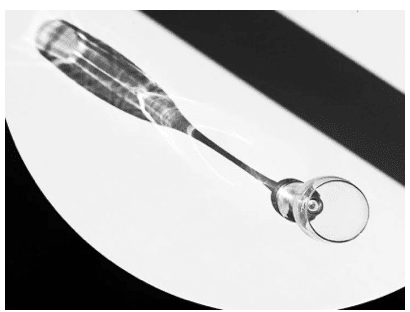
Excess weight in later life is a known risk factor for breast cancer, but what about body fat on its own?
According to the information provided by the Centers for Disease Control and Prevention (CDC), one of the major risk factors for developing breast cancer is “being overweight or obese after menopause.”
However, recent evidence suggests that excessive weight, as such, may not be the only element of risk.
A study whose findings were presented at this month’s American Association for Cancer Research Special Conference, titled Obesity and Cancer: Mechanisms Underlying Etiology and Outcomes, points to body fat as an independent risk factor, even in the context of a normal body mass index (BMI).
“It was previously unknown whether individuals who have a normal BMI but increased body fat have an increased risk of developing cancer,” explains study author Dr. Neil Iyengar, from the Memorial Sloan Kettering Cancer Center in New York City, NY.
“Our findings show that the risk of invasive breast cancer is increased in postmenopausal women with normal BMI and higher levels of body fat, meaning that a large proportion of the population has an unrecognized risk of developing cancer.”
Dr. Neil Iyengar
Body fat, not weight, heightens risk
The correlation between body fat, specifically, and the risk for invasive breast cancer has not been addressed by research so far because it is usually difficult to calculate how much of a person’s BMI is taken up by fat, and how much by bones and muscles.
“Body fat levels are typically measured via BMI, which is a ratio of weight to height. While BMI may be a convenient method to estimate body fat, it is not an exact way to determine whole body fat levels, as muscle mass and bone density cannot be distinguished from fat mass,” says study co-author Prof. Thomas Rohan, from the Albert Einstein College of Medicine in New York City, NY.
To overcome this difficulty, the researchers used dual-energy X-ray absorptiometry (DXA), a technique that allows specialists to measure different elements of body composition, and thus separate the levels of body fat more accurately from other masses that affect weight.
Dr. Iyengar and colleagues sourced their data from the Women’s Health Initiative, a long-term observational study focused around postmenopausal women aged 50 to 79.
In the current study, the researchers analyzed the data of participants with a normal BMI — from 18.5 to approximately 25 — and who had no previous diagnosis of breast cancer, also taking into account basic DXA measurements. These amounted to a total number of 3,460 participants. The median follow-up period for the participants was of about 16 years.
Throughout the follow-up period, the participants were monitored for invasive breast cancer; where a cancer diagnosis was given, the women were then further assessed for estrogen receptor positivity, referring to types of cancer in which the malignant cells’ growth is facilitated by exposure to estrogen.
By the end of the study, of all the participants they monitored, 182 had developed invasive breast cancer during the follow-up period, and 146 of these exhibited estrogen receptor positivity.
When analyzing the data, the researchers found that the women with a normal BMI but a high whole body fat mass had almost twice the risk of estrogen receptor-positive breast cancer, compared with those with a normal BMI but low levels of whole body fat mass.
Moreover, the team noted that the risk was boosted by 35 percent for each 5-kilogram growth in body fat, even as the BMI remained within normal limits.
“It is also notable that the level of physical activity was lower in women with higher amounts of body fat,” Dr. Iyengar points out, which “suggests that physical activity may be important even for those who are not obese or overweight.”
The researchers emphasize the fact that their findings may well take healthcare practitioners by surprise, but they will hopefully allow for better risk assessment in the future, which should lead to more effective use of preventive strategies.
“These findings will probably be surprising to many doctors and patients alike, as BMI is the current standard method to assess the risks for diseases related to body weight,” says Dr. Andrew Dannenberg, from the Sandra and Edward Meyer Cancer Center of Weill Cornell Medicine in New York City, NY.
“We hope that our findings will alert women to the possibility of increased breast cancer risk related to body fat, even if they have a healthy weight,” he adds.
How many pounds have you lost this month? At Dieta Efectiva you can lose 10-12 lbs your first week and 2 – 5 lbs every week after. Visit us dietaefectiva.net to learn more about our program
BG:NMT








